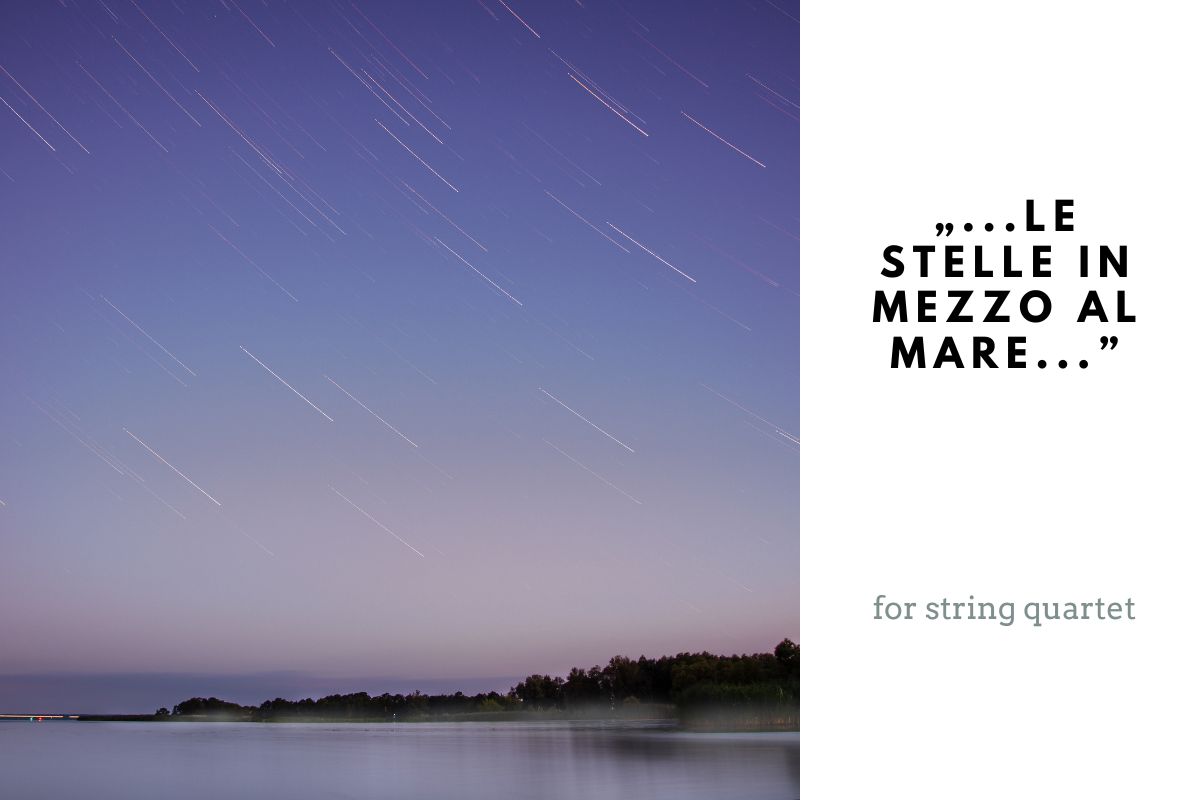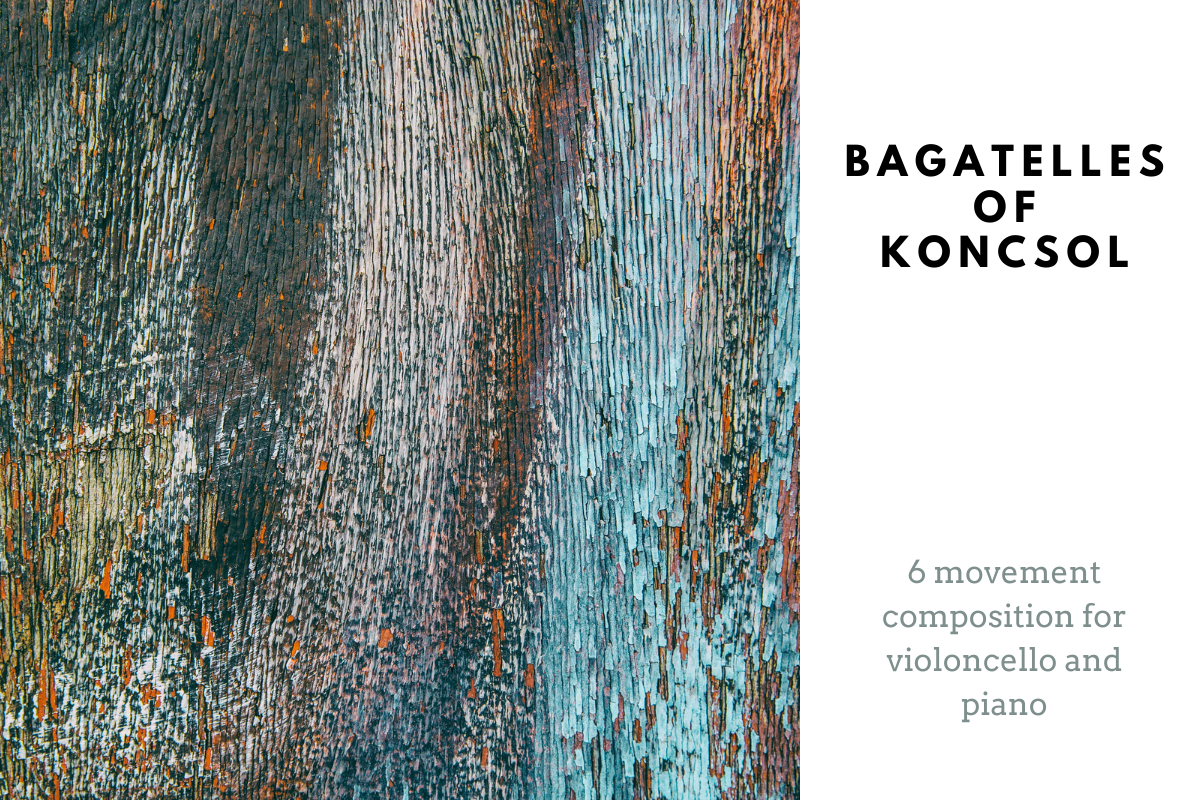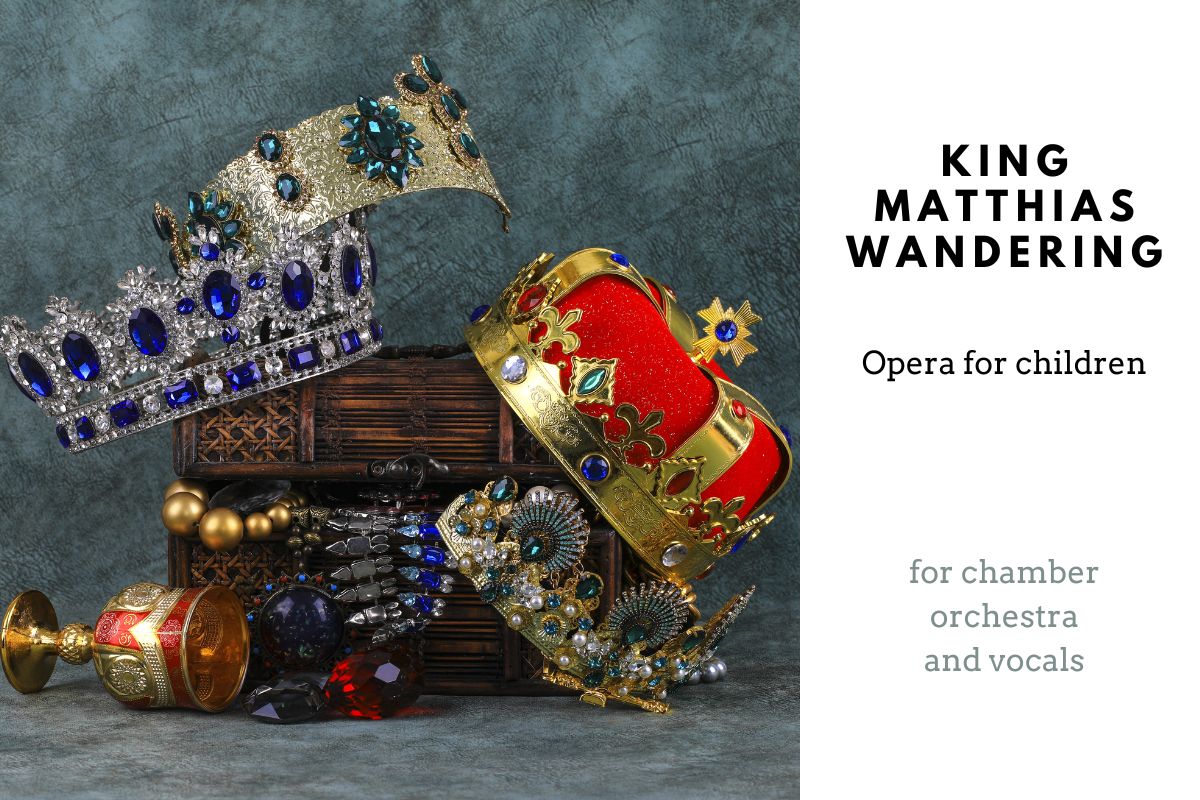„…le stelle in mezzo al mare…”

Original title:
“…A csillagok a tengerárba …”
String Quaret No. 1.
Composer’s Note:
Professor Bozay’s third string quartet is programme music, built around the theme of the four seasons. In response to this, I composed my own first quartet, likewise choosing a central idea—Carducci’s final poem, entitled Congedo, meaning Farewell. In Dezső Kosztolányi’s Hungarian translation, it reads:
O pale lilac!
The stars plunge into the tide of the sea,
and my heart grows cold, the home of song.
While maintaining the classical four-movement structure of the string quartet, I used the poem as a general motto rather than a source of direct thematic material.
The first movement, marked Molto disperato, is a desperate, trembling, and fleeing piece of music. Its middle section offers a brief refuge from neurosis in a nostalgic, impressionistic yearning—but this too is ultimately overwhelmed. The neurosis returns, extinguishing even the music’s initial energy and taking complete control.
The second movement is a Tema con variazioni. The frozen lyricism of the theme sounds frustrated, surrounded by unsettling musical effects. Over the arc of the variations, we move from a timid, fluttering entrance through anguished cries and expressive outbursts, finally arriving at a kind of resignation. By the end of the movement, the musical fabric erodes; the cello plays fragments of the disintegrated theme in a state of apathetic indifference.
True to classical form, the third movement is a dance: Danza stonata priva di giovinezza. The word stonato in Italian refers both to musical out-of-tuneness and to a lack of emotional tone—discordant or dispirited. This is, in essence, a joyless, off-key dance, devoid of youth. A rude little trio minuet, surly and cynical, it fully embraces the aesthetic and emotional content suggested by its title, laced with irony and self-irony.
The final movement is Congedo sereno e silenzioso—A Serene and Quiet Farewell. Unlike Carducci’s poem, this closing movement is not a weighty statement. I added the two adjectives to differentiate it. It bears no grand musical ambition, no concept or intent. It is a gentle, sorrowful song. Perhaps it speaks for itself that I composed it at the time my elder son, having come of age, moved out of our home. This movement is his farewell: a gesture of release, a wish of goodwill, a wave, a sad smile, a memory of lullabies once sung.
Overall, my quartet is an expression of the experience of loss. Interwoven within it is the absence of my beloved teacher, Attila Bozay—his deeply understanding, endlessly kind presence. It also reflects the world’s waning appreciation for culture, and, on a personal level, my son’s growing up and leaving, and the sobering realisation of my own advancing years.
First preformed by Accord Quartet at FUGA, 2013
- Péter Mező, violin
- Csongor Veér, violin
- Péter Kondor, viola
- Mátyás Ölveti, cello




